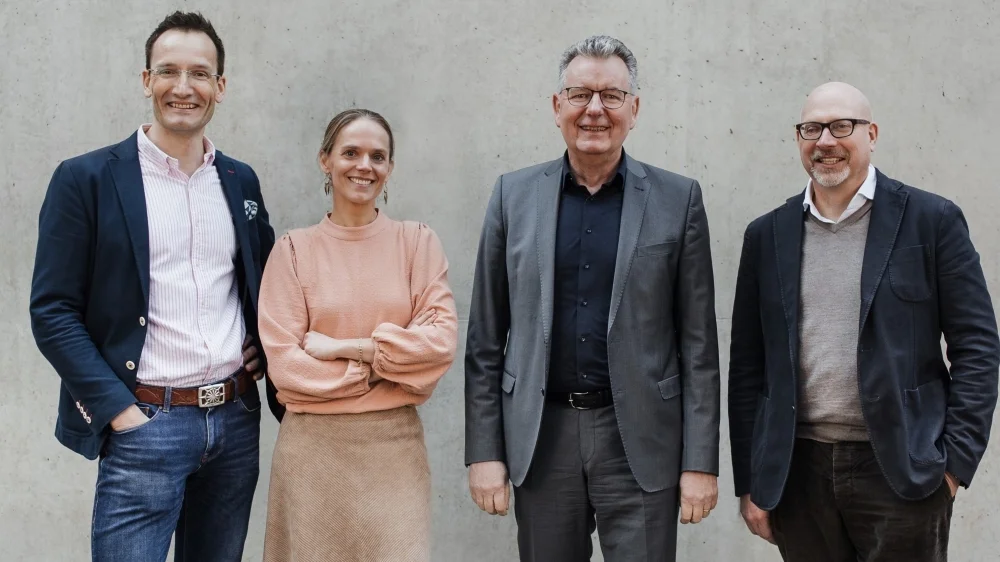Growth and replacement of damaged cartilage tissue using groundbreaking 4D printing technology.
The human body consists of a wealth of differently structured and sometimes very complex tissues. If they are damaged, medicine faces major challenges in restoring their function. Although there are procedures to carry out repairs to the cartilage in the knee, for example, such procedures do not lead to long-term healing that restores the damaged tissue and its full functions. Accordingly, several operations are often necessary because one treatment does not lead to stable, healthy and functional cartilage.
An interdisciplinary team from the DWI - Leibniz Institute for Interactive Materials and the Rheinisch-Westfälische Technische Hochschule ( RWTH ) Aachen wants to develop an alternative technology for replacing tissue in the TriggerINK project. It is led by Laura De Laporte, Professor of Advanced Materials and Biomedicine. TriggerINK uses the innovative principle of 4D printing, for which a special organic ink is designed.
4D printing is a further development of 3D printing technology: In common 3D printing, layer by layer of a material is applied on top of each other, creating a three-dimensional structure - like a cube. “The additional factor that gives 4D printing its name is 'time': we build special components into the ink that react to external stimuli at very specific times. The printed material – in this example the cube – can be moved with light or bioactive components can be released using ultrasound if necessary,” explains the chemical engineer.
Source: Medizin.NRW
